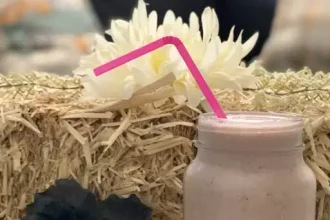“Love they neighbor—and if he happens to be tall, debonair and devastating, it will be that much easier.” —Mae West
The declaration “I love you” is usually used to express a genuine and profound attitude. But what is the best way to do so?
Confessing Your Love
“I just called to say I love you, and I mean it from the bottom of my heart.” —Stevie Wonder
Religions and moral attitudes praise love. However, a romantic declaration of love should be restricted to the appropriate circumstances. This is the reason we are commanded to love our neighbor, but not to fall in love with the neighbor’s wife.
Expressing one’s love is highly desired in romantic relationships, where the wish to love and be loved is central. Confessing your love, which signals a future commitment, can be expressed verbally, though more so through actual behavior, since deeds speak louder than words.
A major problem in saying “I love you” is timing, particularly, whether it is too early: if sufficient time has not been allowed for profound love to develop, it may be confused with intense lust. Love develops at different paces in different individuals; hence your partner may not be able to reciprocate your love.
An additional consideration is that of insincerity, when people use a confession of love to gain other, mainly sexual, benefits (Ben-Ze’ev, 2019, and here).
The constitutive role of time in romantic love is expressed in two major sexual cooling-off behaviors: “Playing hard to get” and the “In due course” policy. The first assumes that perceiving a person as hard to get fans the flames of sexual desire and love. The need to invest more time (and other resources) is a good measure of sincerity and seriousness.
The “in due course” policy does not necessarily doubt the lover’s sincerity, but rather assumes that time is essential for nurturing love and establishing, mutual suitability. In both cases, love must be “earned” and “proven,” by investing time (see here).
When Is the Best Time to Say “I Love You” in a New Relationship?
“When you’ve allowed connection to build gradually, the words ‘I love you’ feel natural and the timing is optimal.” —Renée Wade
Here are a few responses (from Reddit) to the question: “When is an ‘acceptable’ time to say ‘I love you’”?
“The best time to tell someone is in the moment where it perfectly expresses your feeling. There’s no right time. It’s better to say it sooner rather than later.” —A man
“Say it when you mean and feel it.” —A woman
“I told the guy I loved him after 2 weeks of dating, he actually said it back too. Been together 6 years, and still madly in love with him.” —A woman
“I asked a girl to marry me after 2 weeks. I haven’t seen her since.” —A man
“I pretty quickly realized I was in love with my current boyfriend, but didn’t want to say it ‘too soon’ in case it was just lust disguised. We ended up waiting nine months; turns out he was just scared to say it too.” —A woman
“I would want to say it as soon as I truly felt it. In this case, 2.5 months was completely fine. I think that was really enough time to fall for someone.” —A woman
These responses indicate the value of expressing your love when you really feel it. In these circumstances, the danger of saying it earlier is lesser than saying it later. Even if your partner does not yet feel the same way, they may say something like, “I’m just not there yet,” or just say, “love you,” which is less profound than “I love you.”
Another possible response might be, “I’m falling in love with you,” which establishes the direction you’re going and sets expectations. Although both men and women agree on the hurtfulness of non-reciprocal responses, they indicate that they would most likely say “I love you” regardless (Blomquist & Giuliano, 2012).
Another interesting finding is that non-native speakers say “I love you,” more in English than in their native language.
This code-switching occurs particularly in situations where topics in the first language are emotionally charged and become more approachable in a second language (Wilkins & Gareis, 2006).
Here are few common circumstances in which you usually should not say “I love you”: Too early in a relationship; when you’re very emotional and cannot think rationally; when you just echo it back out of politeness; when filling silence or avoiding awkwardness; when expecting something in return; before, after, or during sex; when not ready to commit; when there is nothing else to do.
Gender differences also exist. Men tend to declare their love earlier than women and are happier than women to receive confessions of love from a partner (Ackerman, et al., 2011).
According to one survey, men take an average of 88 days to tell a partner they love them compared to a woman’s 134. Moreover, 39% of men say “I love you” within the first month of dating someone, compared to just 23% of women.
Another study found that across different nations, men were more likely than women to first confess their love. In not being first, women avoid the greater costs of a potential poor mate choice by setting a relatively higher threshold than men.
However, no association was found between initial confessions of love and emotional responses to them (Watkins, et al., 2022).
Saying, “I want to have sex with you,” is, unsurprisingly, more problematic than saying “I love you.” The former may be perceived as indicating the absence of romance.
Moreover, unlike a declaration of love, having sex requires consent and reciprocity; accordingly, stating your wish for sex may be insulting. Hence, saying “I want to have sex with you,” is often not said directly, especially not in the first stages of the relationship.
When Is the Best Time to Say “I Love You” in Ongoing Relationships?
A woman complains to her husband, “Why don’t you ever say you love me?!” The man replies: “But I already told you once. If something changes, I will let you know.” —A well-known joke
In ongoing relationships, timing is less significant than at the beginning of the relationship. Timing is pivotal for romantic intensity when initiating the relationship, whereas time, essential for romantic profundity, is more significant in ongoing relationships, where duration is crucial for developing romantic profundity and frequency for revitalizing romantic intensity. Richard Wilkins and Elisabeth Gareis claim that in ongoing relationships, women want to hear affirmations of love from their partners as often as possible.
However, “men believe love should be treated preciously, so they don’t say it often. If men don’t say it, then women may think that their lover doesn’t love them anymore.” Anyway, married couples express love verbally less than new couples (Wilkins & Gareis, 2006).
To summarize, if partners are genuinely in love with each other, there is no right or wrong time to say “I love you,” though it does not mean that you should say it endlessly. Too much of a good thing may make it meaningless.
It is usually inappropriate to say “I love you” in two major circumstances: (a) when said too early in the relationship, thus not letting time make the loving attitude more profound, and (b) when you do not feel this way, and use it for other ends, e.g., sexual benefits.
Generally, reciprocal disclosure is predictive of healthy relationship outcomes such as closeness, satisfaction, and trust (Willems, et al., 2020). Regardless, confessing your love too early is less problematic than confessing it too late. And you can always follow the The Partridge Family in shouting, “I think I love you.”
















